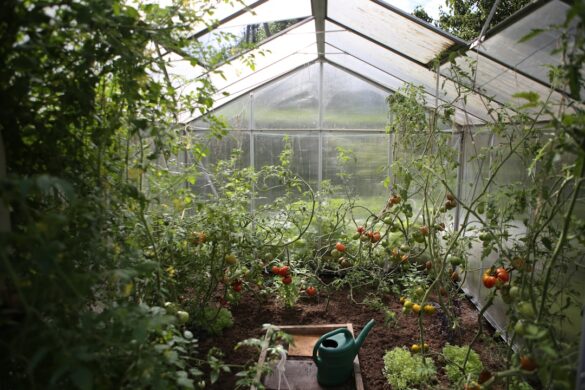Plants are a beautiful addition to any home or garden, but they can be vulnerable to a variety of pests that can quickly ruin all your hard work. These pests can come in many shapes and sizes, from tiny insects to larger animals, and they can wreak havoc on your plants in a matter of days if left unchecked. However, there are several simple and effective ways to prevent common plant pests and keep your garden healthy and thriving.
One of the first steps in preventing plant pests is to create a healthy environment for your plants. Just like humans, plants need proper nutrition and sunlight to grow strong and healthy. Make sure that your plants are getting the right amount of water, sunlight, and nutrients to keep them thriving. Water your plants in the morning to allow the leaves to dry out during the day, which can help prevent fungal diseases. Keep an eye on your plants and look for any signs of stress, such as wilting leaves, yellowing, or spots on the leaves. By creating a healthy environment for your plants, you can help them resist pests and diseases more effectively.
Another important step in preventing plant pests is to practice good garden hygiene. Pests often thrive in messy or cluttered gardens, so keeping your garden clean and tidy can go a long way in preventing infestations. Remove any dead or decaying plant material, as these can attract pests and diseases. Pull up any weeds, as they can compete with your plants for nutrients and water, making them more vulnerable to pests. Regularly clean your tools and pots to prevent the spread of pests and diseases between plants. By practicing good garden hygiene, you can help reduce the risk of pests and keep your plants healthy and thriving.
One of the most effective ways to prevent plant pests is to choose the right plants for your garden. Some plants are more susceptible to pests than others, so choosing pest-resistant plants can help reduce the risk of infestations. Research the types of pests that are common in your area and choose plants that are less likely to attract them. For example, marigolds, lavender, and mint are known for their pest-repelling properties, so planting them strategically in your garden can help keep pests at bay. By choosing the right plants for your garden, you can help prevent common plant pests and keep your garden healthy.
Another key strategy in preventing plant pests is to use natural pest control methods. Chemical pesticides can be harmful to the environment and can also harm beneficial insects that help control pest populations. Instead, consider using natural pest control methods, such as beneficial insects, neem oil, or homemade insecticidal soaps. Ladybugs, lacewings, and predatory mites are all beneficial insects that can help control pest populations in your garden. Neem oil is a natural insecticide that can help repel and kill a variety of pests, including aphids, mites, and whiteflies. Homemade insecticidal soaps are an effective and non-toxic way to kill soft-bodied insects, such as aphids, spider mites, and mealybugs. By using natural pest control methods, you can prevent common plant pests without harming the environment or beneficial insects.
Regularly inspecting your plants is another important step in preventing plant pests. By checking your plants regularly, you can catch pest infestations early and take action before they become a major problem. Look for signs of pests, such as chewed leaves, holes in the foliage, or sticky residue on the leaves. Inspect the undersides of leaves, as pests often hide there. If you do find pests on your plants, remove them by hand, or blast them off with a strong stream of water. By regularly inspecting your plants, you can help prevent common plant pests and keep your garden healthy.
Finally, one of the best ways to prevent plant pests is to encourage a diverse ecosystem in your garden. By creating a diverse ecosystem, you can attract beneficial insects that can help control pest populations naturally. Planting a variety of flowers, herbs, and vegetables can attract pollinators, predators, and parasites that can help keep pest populations in check. Avoid using broad-spectrum pesticides that can harm beneficial insects, and instead focus on creating a healthy and balanced ecosystem in your garden. By encouraging a diverse ecosystem, you can help prevent common plant pests and keep your garden thriving.
In conclusion, preventing common plant pests is essential for maintaining a healthy and thriving garden. By creating a healthy environment for your plants, practicing good garden hygiene, choosing pest-resistant plants, using natural pest control methods, regularly inspecting your plants, and encouraging a diverse ecosystem, you can help prevent pests and keep your garden healthy. With a little time and effort, you can enjoy a beautiful and pest-free garden that will bring joy and beauty to your home for years to come.

